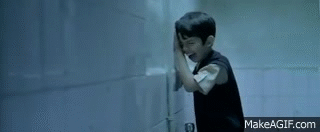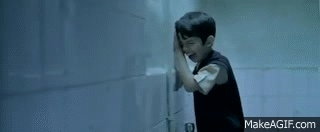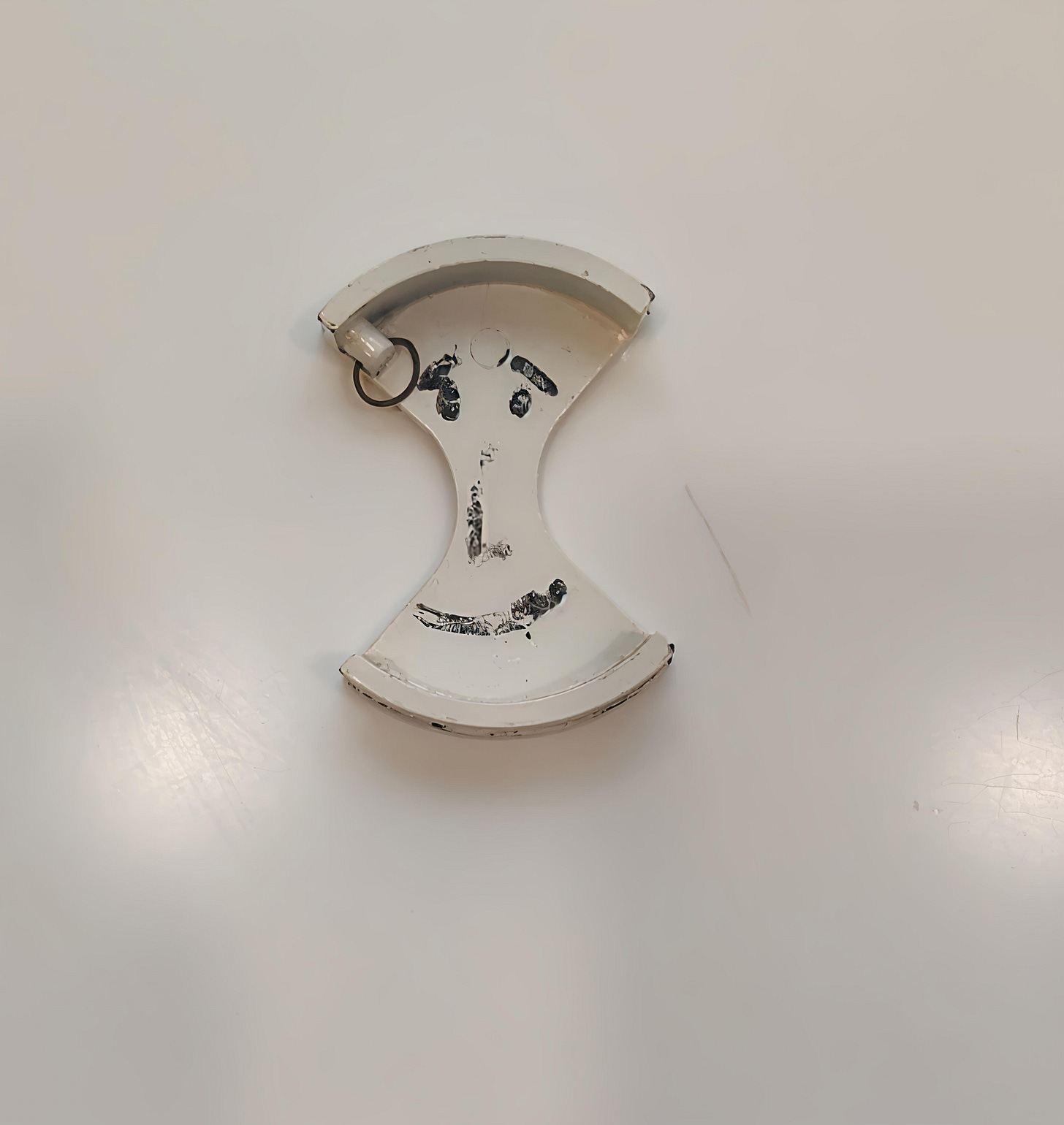This week, we said goodbye to a member of our family — our ten-year-old, Oppie.
I met Oppie on the 13th of March, 2015. It was love at first sight. Well, sort of. I’d been observing his brothers and sisters for many weeks before deciding I was ready. At intersections I would gape at them, as they stood next to me. On narrow streets I would watch them zip past, full of vim and vivacity. I want one too, I’d whisper to myself.
It was their appearance that attracted me. There was something endearing about them, a cute countenance that promised a pleasant personality. I knew nothing about the more ‘serious’ attributes: their temperament, reliability, or mileage. But to me, none of that mattered. I was already sold.
All I want to know, I told the salesman at the dealership, is whether the steering has volume control buttons. Will I be able to turn up the music without taking my hands off the wheel? This was very important to me — in fact, it was the only thing I cared about. My car should have volume buttons on the steering wheel. The salesman assured me it would and I made the booking.

A few days later, they called me to schedule the delivery. I arrived at the dealership on a Friday evening after work, and there he was. Naturally, the first thing I did — after checking the steering wheel for volume buttons — was name him.
Later that night, I went to meet Simran. We’d only been dating for a few weeks. Does he have a name, she asked me soon after settling into the plastic-wrapped seat. Yes, I beamed, he does. Oppie, after his great-grandfather, Optimus Prime. She laughed, shook her head and called me crazy — a routine she would go on to perfect over the next decade.
With a four-thousand-year-old history, the Epic of Gilgamesh is one of the oldest written poems in the world. It begins with the tale of Gilgamesh, the demigod king of Uruk, and his contender-turned-comrade, Enikdu. Enikdu had an unusual birth. The goddess of creation formed his image in her mind, and then:
…dipped her hands in water and pinched off clay, she let it fall in the wilderness, and noble Enikdu was created.
Enikdu is not the only ancient clay-man. In the mythologies of many civilizations — Egypt, China, Greece — clay-creation stories are a recurring motif.1 The gods scooped up some mud, so the legends go, and shaped them into the primordial human beings, our predecessors.
As is their wont, scientists have rubbished this origin theory with staid arguments founded on logic and rationality. But you have to wonder: what if we were conceived from clay? Can our muddy ancestry be the reason why some of us feel a kinship with lifeless things? Can it explain why we talk to our coffee mugs, trusting them with our secrets and seeking their counsel? I know I do it. And, it turns out, so does Ann Patchett.
In her essay How To Practice, she marvels at her:
…consistent anthropomorphizing of inanimate objects… It was as if I’d run my fingers across some unexpected lump in my psyche. Jesus, what was that?
When I started working, the lump in my psyche helped me make my first friend in the office. At the corner of my workstation, behind the computer monitor, there lay an orphaned cable grommet — shaped like an hourglass, with an eggshell white complexion. I named him Sandy and placed him on the cubicle panel so that everytime I looked up from the screen our eyes would meet.
Sandy is known to have a wild side — he even sports an eyebrow piercing — but he has always been kind to me. In the past fifteen years, I’ve shifted desks half a dozen times. Sandy has followed me around the building. Now, he sits on a shelf in my cabin.
I don’t remember when it started, when I began bestowing personhood on my possessions. It was likely a childhood trait and I saw no reason to stop as I grew older. My laptop is called Dobby, my smartwatch is Samwise. I’ve christened my phone Andúril because the one I had before was named Narsil.2 And the monikers are just a tiny part of it.
When I buy a new pair of sneakers — something I seem to be doing too often these days — I feel sorry for the older shoes that now lie neglected, wedged into a corner of the cabinet. Every time my favourite t-shirts are demoted from ‘outdoors appropriate’ to ‘strictly sleepwear’, a sense of pathos envelops me. When my headphones stopped working after years of companionship, I was overcome with sorrow. Caressing their lifeless body, I murmured, Ruin hath taught me thus to ruminate, that time will come and take my love away.
In 2022, researchers in Canada conducted a survey to understand ‘why people anthropomorphize objects in their lives’. Participants were asked questions about specific objects they had named. Cars featured regularly in their responses. For example:
It’s named for Keith Richards because the car was still alive and kicking strong, LONG past the time it should have been retired and done.
The study suggests one of the reasons we name things, and attribute personalities to them, is because ‘a simple indication of ownership (e.g., “my car”) is not enough to recognize the social relationship’ we share with these items. The naming is an act that signals their value, their importance in our lives.
These conclusions make perfect sense to me.
Since 1989, Maruti hatchbacks have been valued members of the Banerjee household. Our first car was the second generation Maruti Suzuki 800. He was with us for the better part of a decade.
When you’re young, you tend to make high-definition memories that remain undimmed by age. I’ll be hard-pressed to tell you what I ate for lunch last week but decades-old vignettes involving that car still occupy my mental real estate. On one occasion — I must’ve been around eight or nine — we were driving somewhere when the horn stopped working. My father, in the driver’s seat, grumbled his annoyance and my mother tried to soothe him. I was in the back, standing on the hump on the car floor, my body squeezed between the front seats.
I have a solution, I announced to them from my pulpit. Let us roll down all the windows. Now, I instructed my father, you can continue using the horn as if nothing is wrong. Everytime I see you press the button, I will shout PEEP PEEP and people on the road will be alerted. Problem solved, you’re welcome.
I still think it was a sound strategy. Unfortunately, it turned out to be yet another instance when my parents failed to appreciate my genius.

When I got my driving license, some years later, a beige Maruti Alto had joined our little tribe. In my final year at University, I would sometimes take the car to campus. One day, my friends and I decided to visit the nearby mall. Ever the gallant soul, I offered to drive us to our destination.
The thing about me is I am a prudent driver. Caution and vigilance: these are my watchwords everytime I put a vehicle into gear. On that morning too, I ignored the discontented muttering of my passengers and stuck true to my principles. I was driving at what I thought was a steady pace when I noticed, in my sideview mirror, a cyclist looming ever larger. As howls of outrage issued from our car, the cyclist drew level, and then pedalled past us with fluid, serene strides.
Lesser men may have lost their composure and pressed the accelerator, but I am made of sterner stuff. I gripped the wheel tight and kept the speedometer needle steady. Speeding was never an option. There was, of course, the apprehension of damaging my parents’ car. But more importantly, I viewed the vehicle as a sibling, a younger brother — how could I allow myself to put him in harm’s way?
I know there is an obvious dissonance here. Is it possible to nurture such affection for Oppie, while also planning his cold-blooded sale? Is the act not akin to filicide, a heinous betrayal on my part?
I would like to believe he will find a loving home, but there are no certainties. He may be turned into a taxi-cab — unkempt, unwashed, underfed. He may be used to impart driving lessons and suffer many nicks and bruises. Five years from now, when his registration runs its course and the State of Maharastra revokes his identity, his new owners may not want the trouble of renewing his paperwork. They may choose instead to salvage him for parts. Knowing this, how can I bear to part ways with him?

Some behavioural scientists believe anthropomorphic tendencies are ‘totally normal’ and point to higher social intelligence. It can be a sign of a healthy imagination and an empathetic outlook.
If it’s our nobler instincts that prompt us to project our humanity onto objects, perhaps it is our baser desires that allow us to so blithely dispose of them. Our craving for a new possession unravels existing bonds, the novelty eroding our fondness for the item we want to replace. It is only human, I suppose, to get excited at the prospect of a new relationship.
By the time you read this, Oppie would have left us. We do not mean to disrespect his memory but my wife and I are looking forward to meeting our new car.
Yesterday, during dinner, she asked if I’ve been thinking of names.
Of course, I replied. I’ve been doing some research. According to some Transfomers storylines, Optimus Prime and Megatron were once very close, practically brothers. If we go by that lineage, being Oppie’s sibling would make our new car the great-grandson of Megatron. So, how about we name him Megu?
And just as she had all those years ago, Simran laughed, shook her head, and said, You’re crazy.
Yes, I know I am a thirty-seven-year old man. What’s your point?






"It is only human, I suppose, to get excited at the prospect of a new relationship."
Ok ok ok. No worries, no worries.
Surely, Mangesh instead of Megu? Just me?